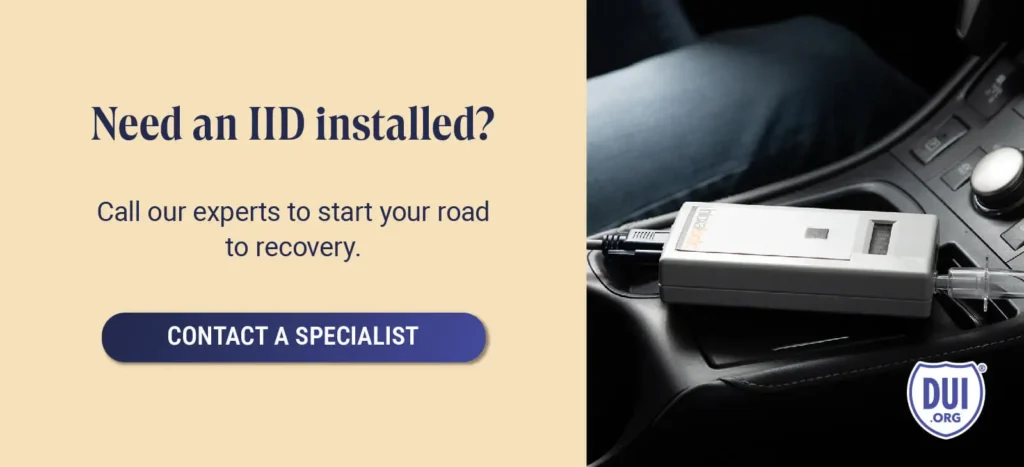
Getting charged with a DUI (Driving Under the Influence) comes with serious legal and financial consequences. If you’re facing a DUI, it’s essential to understand the associated costs, including the potential requirement to install an Ignition Interlock Device (IID), and how to budget for them. Budgeting for these expenses can help you navigate this challenging time without additional financial strain. In this article, we’ll break down the costs of a DUI conviction and share strategies to help you manage your finances effectively during your DUI journey.
Understanding the Immediate Costs of a DUI
Legal Fees
Hiring a DUI attorney is strongly recommended and will most likely be your biggest expense. Attorney fees vary widely, depending on the complexity of your case, the attorney’s experience, and your location. You may be charged a flat fee that could range from $1,500 to $5,000 or more, or an hourly rate that can add up quickly if your case drags on.
In addition to attorney fees, you’ll also need to budget for court costs. These can include filing fees, fines, and other administrative expenses, which typically range from a few hundred to several thousand dollars, depending on the jurisdiction.
Bail
If you’re arrested for a DUI, bail might be necessary to secure your release from jail. Bail amounts vary depending on the severity of the offense, your criminal history, and the state’s regulations, but for a first DUI, bail is typically set at $5,000 or less. In some cases, a bail bondsperson might be needed, which will add to the overall cost—normally 10 to 15% of the bail amount.
DUI Fines and Penalties
The fines associated with a DUI conviction can be steep, often ranging from several hundred to several thousand dollars, depending on the state and whether it’s a first or subsequent conviction. Many states also impose additional penalties, such as mandatory community service, alcohol education classes, and probation, each of which comes with its own set of costs.
Long-Term Financial Implications
Increased Insurance Premiums:
One of the most significant long-term financial consequences of a DUI is the impact on your car insurance premiums. After a DUI conviction, your insurance rates could increase by 33% to 266%, depending on your insurance provider and driving record. This rate hike typically lasts for several years, resulting in thousands of dollars in additional insurance costs over time. You may also have to add an SR-22/FR-44 certificate to your insurance policy. This is proof that you carry the required minimum insurance coverage. Requesting an SR-22 will alert your existing insurance carrier that you have had a negative driving event and will likely impact your coverage at renewal. Not all standard insurance carriers offer SR-22, so you may have to seek out another carrier immediately.
Lost Income
A DUI conviction can also lead to lost income. You may need to take time off work to attend court hearings, complete community service, or fulfill other legal obligations. If your job requires a clean driving record, you might even lose your job, leading to a significant loss of income.
Employment Consequences
In addition to lost income, a DUI can negatively affect your current employment and future job prospects. Certain professions, particularly those that require professional licensure, driving or working with vulnerable populations, may terminate your employment following a DUI conviction. This can lead to long-term financial instability as you search for new employment.

Cost of Installing and Maintaining an IID
What is an IID?
An Ignition Interlock Device (IID) is a breathalyzer for your vehicle that prevents the engine from starting if it detects alcohol on your breath. In many states, installing an IID is mandatory after a DUI conviction, especially for repeat offenders or those with a high breath alcohol concentration (BrAC) at the time of arrest.
Installation Costs
The cost of installing an IID can vary, but it typically ranges from $70 to $150. This is a one-time fee, but it’s not the only expense associated with an IID.
Monthly Fees
In addition to installation, you’ll need to budget for monthly fees, which usually range from $70 to $130. These fees include the cost of leasing the device but do not cover periodic calibration costs for device maintenance. IID-service locations may charge their own small feel for performing state-mandated IID calibrations. Multiple failed attempts on your device may result in a lockout, potentially leading to additional costs for unlocking the device.
Duration and Compliance
The length of time you’ll be required to have an IID installed varies depending on your case and state laws. It can range anywhere from three months to a few years. It’s crucial to comply with all IID requirements, as failing to do so can result in additional fines, extended IID usage, or even further legal consequences.
Other Related Expenses
License Reinstatement Fees
After a DUI, your driver’s license will likely be suspended. To get it reinstated, you’ll need to pay a reinstatement fee, which varies by state but generally falls between about $125 and $500, according to state driver’s license administration websites.
Alcohol Education or Rehabilitation Programs
Many states require DUI offenders to complete an alcohol education or rehabilitation program. The cost of these programs varies, but you can expect to pay anywhere from $150 to $1,000, depending on the program’s length and intensity.
Transportation Costs
While your license is suspended, you’ll need to find alternative transportation. Whether it’s public transportation, rideshares, or relying on friends and family, these costs can quickly add up, especially if you live in an area with limited public transit options.
Strategies for Managing Costs
Payment Plans and Financial Assistance
If you’re concerned about budgeting for a DUI and covering all these costs, consider exploring payment plans for court fines and fees. Some courts offer payment plans that allow you to spread the payments over several months, easing the immediate financial burden. Additionally, some organizations provide financial assistance or grants to help cover legal fees or IID installation costs.
Insurance Coverage
While most insurance policies won’t cover DUI-related expenses directly, some may offer coverage for certain aspects, such as towing costs or bail. It’s worth reviewing your insurance policy or speaking with your insurance agent to understand what might be covered.
Legal Aid Resources
If you’re unable to afford a private attorney, consider seeking help from a legal aid organization. These organizations provide free or low-cost legal services to individuals who qualify based on income. While the level of assistance may vary, it can be a valuable resource for those struggling to afford legal representation.
Staying Organized
Staying organized is crucial when budgeting for a DUI, as fines, legal fees, and program costs can quickly add up. By keeping track of deadlines, payment schedules, and required documentation, you can avoid costly late fees and ensure you're on top of every financial obligation.
DUI.org is Here to Help
Dealing with the aftermath of a DUI is stressful, and the associated costs can be overwhelming. By understanding the various expenses involved and planning accordingly, you can navigate this challenging time without facing additional financial hardship.
Moving forward and regaining your driving privileges after a DUI can be expensive and confusing, and the next steps can be tough, but DUI.org is here to help. Call us today for personalized guidance and support as you move forward after your DUI.
Get support.
What is next? We can help you through the process. Give us a little information and we can support you through the next steps.
All fields are required.